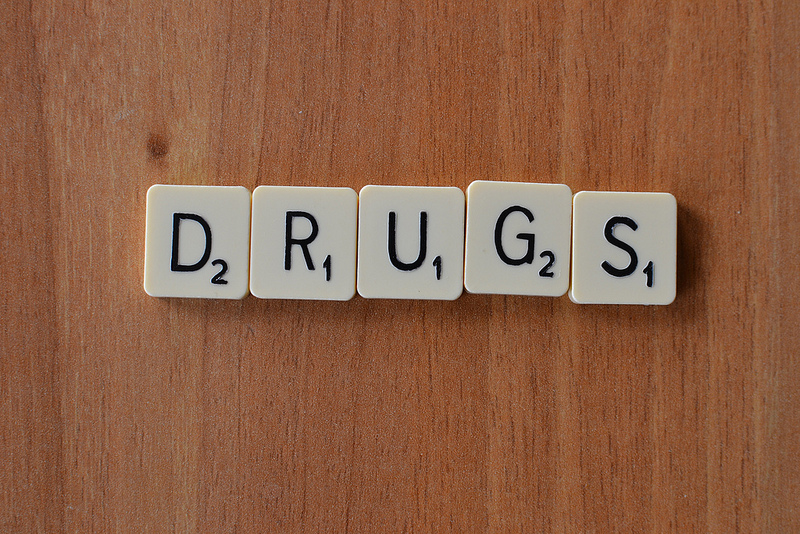According to the Daily Mail, scientists in Sweden are working on a “cure” for paedophilia. The trial involves a drug that disrupts testosterone.
Forcing or persuading children to have sex is one of the worst things a person can do to them. Sexual abuse causes serious emotional and physical harm, and can ruin a child’s capacity to have healthy relationships as an adult. However, we mustn’t confuse all sexual abuse of children with paedophilia.
Paedophiles are sexually attracted to children but they may, or may not, act on their urges. In fact, my experience indicates that most of the people who abuse children are not paedophiles. Research by Alanko and colleagues, looking at the question of whether paedophilia was inherited, showed that approximately 5% of men in the study with paedophilia had offended against children. In fact, people who offend against children, in my experience, are (mostly) men who are obsessed with sex and are looking for a sexual outlet, regardless of the age of the victim.
In our research which looked at whether medication was helpful for sexual offenders who struggled with their obsession with sex, we found that while over 90% of them had committed offences against children, most of them had also abused adults. And, in some cases, victims included both males and females, showing a broad pattern of offending. These abusers will seek out any possible opportunity for sexual satisfaction and sadly children are often vulnerable and easy prey.
Clinicians use the following Diagnostic and Statistical Manual of Mental Disorders criteria to diagnose paedophilia:
- Over a period of at least six months, recurrent, intense sexually arousing fantasies, sexual urges or behaviours involving sexual activity with a prepubescent child or children (generally age 13 years or younger).
- The person has acted on these sexual urges, or the sexual urges or fantasies cause marked distress or interpersonal difficulty.
- The person is at least age 16 years and at least five years older than the child or children in Criterion A.
Most paedophiles don’t act on their urges
Many researchers think that paedophilia is a sexual orientation (like heterosexuality), rather than a psychosexual disorder or illness. Regardless of which it is, it’s very difficult for people to live with. Discovering at puberty that your sexual preference is for children, is usually a terrifying and depressing realisation.
Think back to when you were 13 or 14 years old and just beginning to become strangely drawn to the boys or girls around you. Now think what it would have been like if those feelings were not for your own peer group, but for much younger children. You might wonder or worry a bit at first, and, as time went on, worry a lot. Why are you so different? What is wrong with you? Who can you talk to about it?
It’s tough enough for teenagers to talk to their parents about sex, let alone tell them they are a paedophile. What we need to do, as a society, is to understand that some people are sexually attracted to children. More than this, we also need to understand that this attraction to children does not bring with it an uncontrollable urge to force sexual attention on children.
Or course, there will be a small number of people who either can’t or won’t control their sexual urges, but for the most part, they can and they will. Think of yourself in a similar situation with your preferred partner type. How easy do you find it to control yourself in a roomful of the type of people you are attracted to? It’s not so difficult to do, is it?
Medication to manage sexual arousal
But what about paedophiles who do act on their urges (as well as sex offenders who prey on children) – do the drugs work for them? As the researcher leading the evaluation of the use of these types of drugs in the UK prison service, I can reassure you that they do reduce people’s obsession with sex.
The drugs seem to work well and it is great that they are being offered (in this case) as a prevention tool. It’s also important that they are offered alongside psychological treatment to further help people control their urges.
As of April 1, 2016, both medication and psychological treatment are also being offered in the UK across the whole of the prison service, and some charities, such as the Safer Living Foundation, are also looking to offer them as a prevention tool for people who have not yet committed an offence.
Keeping children safe
Although testosterone disrupting drugs can help sex offenders control their urges, they may not be a cure for paedophilia. As already described, most people who offend against children are not paedophiles.
Most paedophiles are perfectly capable of controlling themselves and understand the damage that will be done to children by sexual abuse. We need to stop panicking about paedophiles, and focus our efforts on offering treatment and help to anyone struggling with their sexual urges. That’s what will help our children grow up safely.
 [email protected] is a trustee and co-founder of the Safer Living Foundation charity; the charity conducts projects that seek to prevent sexual offending or reoffending. She also receives funding from the National Offender Management Service to evaluate the use of anti-libidinal medication in the prison service.
[email protected] is a trustee and co-founder of the Safer Living Foundation charity; the charity conducts projects that seek to prevent sexual offending or reoffending. She also receives funding from the National Offender Management Service to evaluate the use of anti-libidinal medication in the prison service.
Belinda Winder, Professor of Forensic Psychology & Head of the Sexual Offences, Crime and Misconduct Research Unit, Nottingham Trent University
This article was originally published on The Conversation. Read the original article.



 Why financial hardship is more likely if you’re disabled or sick
Why financial hardship is more likely if you’re disabled or sick  How to support someone who is grieving: five research-backed strategies
How to support someone who is grieving: five research-backed strategies  Canada’s local food system faces major roadblocks without urgent policy changes
Canada’s local food system faces major roadblocks without urgent policy changes  Locked up then locked out: how NZ’s bank rules make life for ex-prisoners even harder
Locked up then locked out: how NZ’s bank rules make life for ex-prisoners even harder  The American mass exodus to Canada amid Trump 2.0 has yet to materialize
The American mass exodus to Canada amid Trump 2.0 has yet to materialize  6 simple questions to tell if a ‘finfluencer’ is more flash than cash
6 simple questions to tell if a ‘finfluencer’ is more flash than cash  What’s the difference between baking powder and baking soda? It’s subtle, but significant
What’s the difference between baking powder and baking soda? It’s subtle, but significant  Office design isn’t keeping up with post-COVID work styles - here’s what workers really want
Office design isn’t keeping up with post-COVID work styles - here’s what workers really want 
































